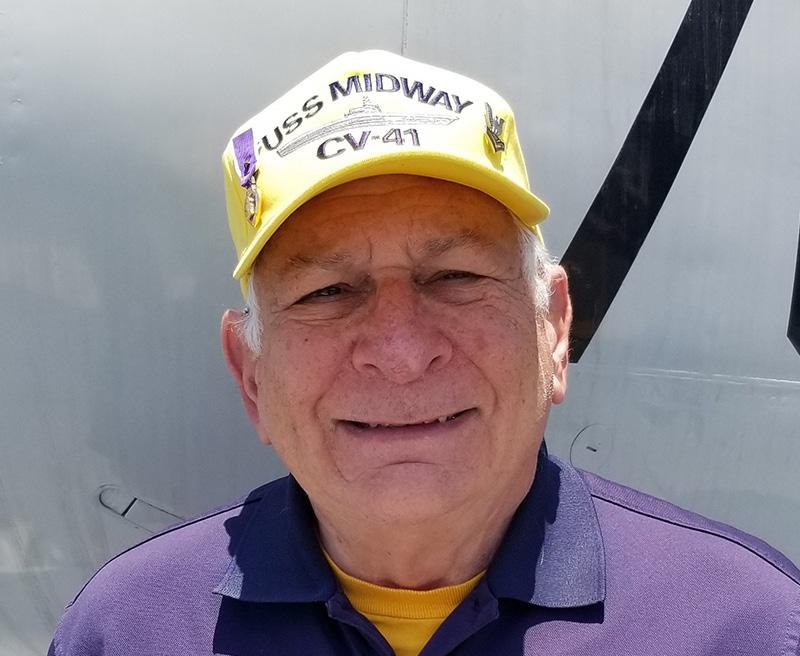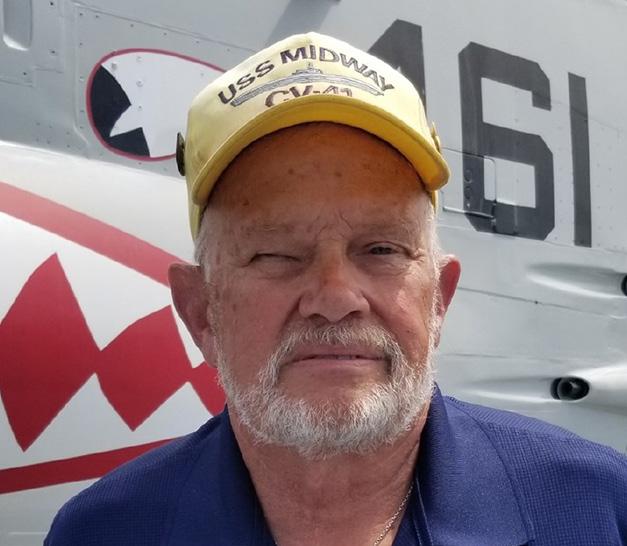
3 minute read
Midway Magic - Selflessness of Service
Selflessness of Service
He was on combat patrol in Vietnam’s Cam Lo Valley in the spring of 1968 when his platoon came under enemy fire. A Navy corpsman, his job was simple - keep his comrades alive during combat. Crawling down the line, he felt something strike him in the back. He paused momentarily, but did not falter. Moments later, while treating a wounded Marine, he was hit it again. Driven, he kept going. He then spent several hours moving the injured to where medical evacuation (medivac) helicopters could fly them out of harm’s way.
Robert Berns was a 21-year-old corpsman. He didn’t know it at the time, but he had a bullet lodged against his spine. More visible, another round had ripped through his hand. He was lucky to be alive. The Marines in his platoon, however, were even luckier he was there to save them.
In the heat of battle, Berns was devoted to something bigger than himself.
“I was strongly committed to my Marines,” said Berns, a native of Youngstown, Ohio. “We were all there together with a job to do and my commitment was to aid injured Marines.”
For his wounds, but mainly for his heroism, he would later be awarded the Purple Heart. August is the month when the United States pays tribute to those wounded or killed in combat. National Purple Heart Day is observed each year on Aug. 7 to commemorate the creation of the oldest American decoration for military merit.

Initiated by General George Washington in 1782, the Purple Heart is presented to service members for any singularly meritorious action on the battlefield. The award also symbolizes the courage and devotion of the American patriot.
Berns’ action in combat more than embodied the bravery and selflessness of an American patriot.
In 1963, Bob Werner lied about his age, and at 16 enlisted in the Navy. Joining the Navy was something he always wanted to do.
Like Berns, Werner was also a combat corpsman assigned to a Marine unit in Vietnam.
“It was a viciously hot and humid day,” reflected Werner on a Marine patrol in 1965 near Da Nang. “Suddenly we started taking small-arms fire. A mortar landed just a few feet in front on me and the next thing I knew I was laying on my back in a rice paddy.

I came to my knees and noticed that there were several shrapnel wounds on my chest and I was bleeding profusely.”
He paused long enough to check his injuries and decided they weren’t serious. He got back to his feet, blood still pouring from his chest, and moved up to help a group of wounded Marines.
Werner was wounded twice more before being rotated back to the United States. For his gallantry, and without fanfare, he was awarded multiple Purple Hearts.
Robert Berns and Bob Werner, like so many others, are quiet American heroes.
While their selflessness in combat often goes unspoken, they didn’t let their loyalty to others end on the battlefield. Equally committed to their community, both are now volunteer docents for the USS Midway Museum. Today, more than 50 years later, they subtly share their Navy experiences and the importance of military service with millions of museum visitors every year.
“I find it very rewarding to see the smiles on the faces of the guests, especially the children, as they learn about the ship,” said Werner, a San Gabriel, Calif. native who spent a career working in the metals industry after leaving the Navy. “I feel it is very important to remember our past and important events in our history such as World War II and Vietnam.”
“I started volunteering as a docent on the Midway in 2016,” said Berns who has more than 3,600 volunteer hours at the museum. “The satisfaction of being a Midway volunteer comes from helping guests understand the dedication of the military to serving the country and protecting our freedoms.”
Like the bond they developed five decades ago with the Marines they served with in Vietnam, Berns and Werner have found a similar esprit de corps as volunteers helping Midway visitors.
“What I enjoy most is the camaraderie with the other volunteers,” said Berns, a retired family physician. “The closeness with other volunteers is what I experienced in the military and have not experienced anywhere else.”
They were unselfish while in uniform and continue to be noble servants to the community today.
“When I leave the ship at the end of a watch, I find myself smiling,” said Werner, who has been a Midway volunteer docent for nearly six years.”










